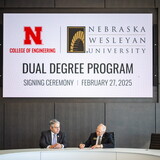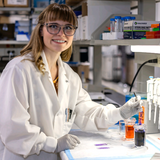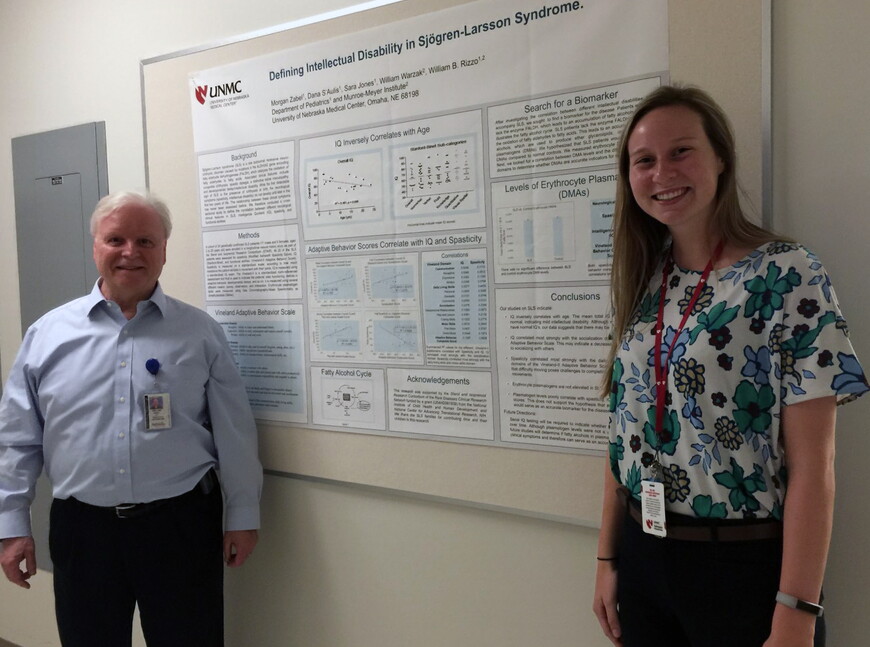Morgan Zabel spent her summer contributing to medicine.
She didn’t cure any diseases. But a summer research experience gives her hope not only for a future career, but for the advances in medicine happening every day.
The biochemistry and molecular biology student from Omaha took lessons learned in her Nebraska Wesleyan classrooms to the labs of the University of Nebraska Medical Center where she was one of five NWU students accepted into the medical school’s Summer Undergraduate Research Program (SURP).
Zabel arrived each day at the Durham Research Center where she conducted independent research on Sjogren-Larsson Syndrome, ultimately hoping to findSenior doese an alternative way to diagnose the rare autosomal genetic disease.
Sjogren-Larsson Syndrome originates from a defect in mutation of a certain gene that codes for the production of fatty aldehyde dehydrogenase. The genetic defect causes neuro-ichthyotic symptoms, such as rigid spasticity and scaly, uncomfortable skin. Consequently, the syndrome correlates with intelligence degeneration over time, and the ability to do everyday tasks becomes more difficult.
“When you’re in the real-world doing science that can help benefit someone’s life on something that they have very little, minimal research like a rare genetic disease, it’s not so easy as flipping a switch and here’s the cure,” she said.
Zabel analyzed three years of collected data on neurological symptoms, IQ, spasticity, vineland adaptive ability scores, and interactions with others and correlating the symptoms together. Instead of the traditional way of diagnosing the syndrome, which involves expensive testing, her studies investigated more practical, cost-effective routes, specifically looking for biomarkers by scanning blood samples for high fatty alcohols and plamalogens. Her results were inconclusive.
“In our general chemistry or organic chemistry labs, someone has replicated those over and over again to prove that students can do it,” she said. “If they take care of the technique, they should get this result.”
She learned quickly that real-world science does not always work out that way and is difficult when you do not know what you’re looking for.
“It finally gave me that realistic ‘oh my goodness,’ things aren’t always going to go as planned, and that’s how it’s supposed to go,” she said.
Despite her results being inconclusive, she said finding results that work are more rewarding when you have to work hard to find them.
Her experience also included the opportunity to meet patients – an opportunity she credits her supervisor, Dr. William Rizzo, a professor in UMMC’s Division of Inherited Metabolic Diseases, for making a reality. Those particular interactions with patients validated her decision to pursue medicine.
She also credits Cindy Marolf, assistant professor of biology and pre-health advisor at NWU, for guiding her through the application process for her summer research at UNMC.
“I really got to feel like I was contributing to medicine,” she said.
And Zabel’s contributions will continue. She is among 50 students from across the country (and nine from Nebraska Wesleyan) to receive early acceptance to the University of Nebraska Medical Center where she will pursue medicine. Zabel will graduate from Nebraska Wesleyan in May.
###
— Story by Danielle Anderson, public relations intern










